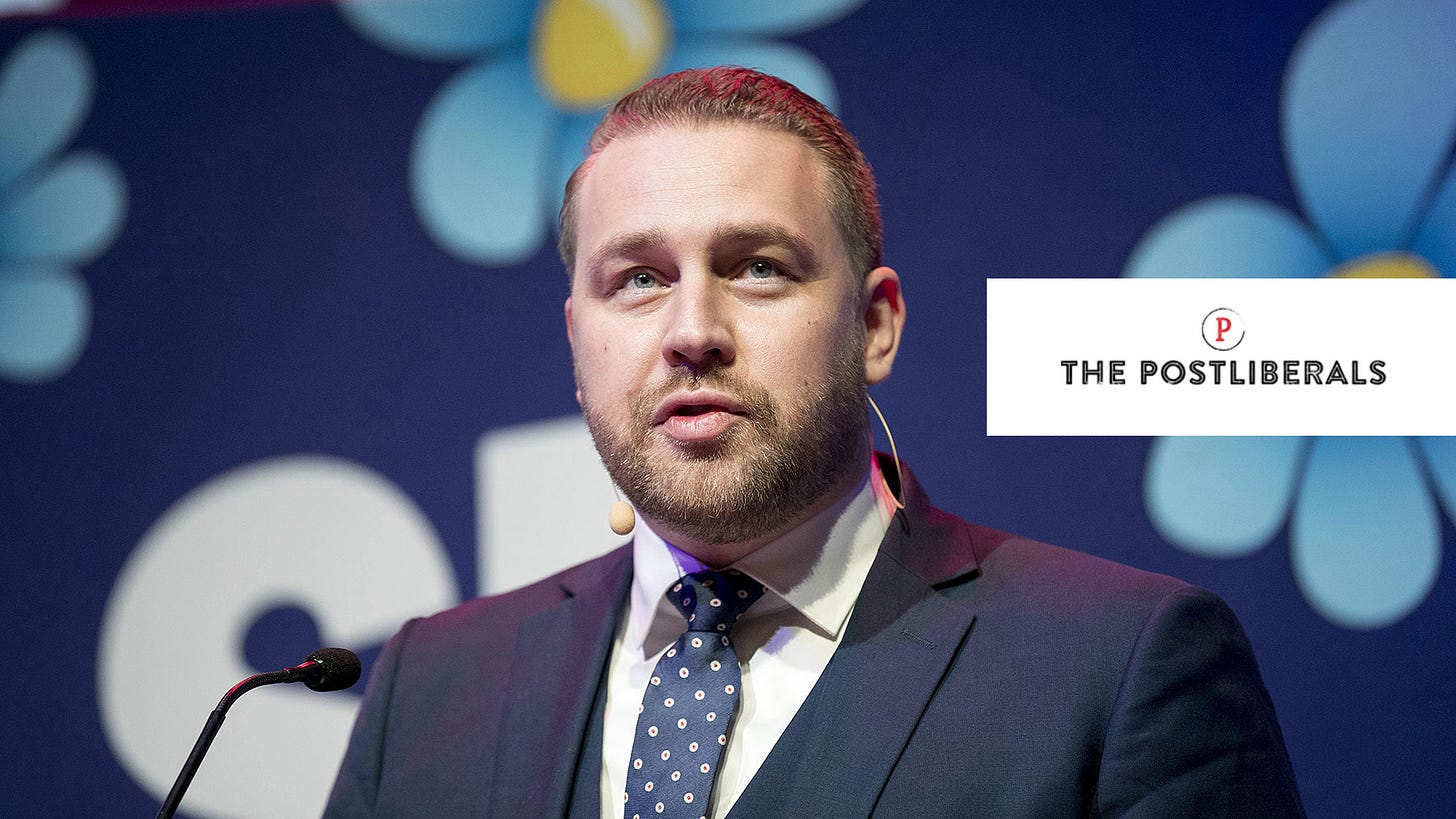The Rise of Working-Class Swedish Conservatism
Mattias Karlsson speaks to Postliberal Order about overcoming antifa attacks to build a working-class conservative political party
Today we publish an interview with Mattias Karlsson, an MP for the Sweden Democrats as well as a senior member of the party and an important figure in the development of Swedish conservatism. Sweden has been a battleground for policies around the state and immigration policy for years—it is also the home of a burgeoning right-wing party, and accompanying intellectual movement, in the Sweden Democrats. Gladden Pappin caught up with Karlsson at CPAC Hungary; you can find him on Twitter @sdkarlsson.
Mattias, tell us about yourself.
I’m a member of the Swedish Parliament as well as of the executive board of my party, the Sweden Democrats. I started the first conservative think tank in Sweden, called Oikos.
Tell us a bit about the recent history of the Sweden Democrats. They have increased their voter share significantly. How has that process happened, and what are the main drivers of increasing support for the Sweden Democrats?
It’s been a tough journey. We haven’t gotten anything for free. We have gradually built the party up—it’s a grassroots movement. When I started in politics, the options for changing people’s opinions or putting our opinions out were very limited. We were not allowed to make advertisements in newspapers. We couldn’t have public meetings because we’d be physically attacked by antifa. The post office refused to hand out our leaflets, and on and on. Quite early on, we realized that we had to have a grassroots movement and that ordinary people would just spread the message for us using traditional methods. Then the internet came along and helped out a lot. For the first time, we could compete on equal terms, and we put a lot of effort into trying to be good at that. Currently on social media we are larger by ourselves than all the other parties combined—so I’m happy with that.
But there’s been a very fierce resistance—even almost absurd at various points in time. A few years back, for example, all the other parties joined in a formal coalition called the “December Agreement.” The only goal of that was to keep us out of any kind of influence. The deal was that if the Left wins, the Right will be silent and allow them to do whatever they want; they will never take assistance from us, even if we agree on different issues; and the other way around. Basically they cut us out of the democratic system.
Mattias Karlsson is a member of the Swedish Parliament for the Sweden Democrats. He also founded Oikos, Sweden’s only conservative think tank.
Then we had the migrant crisis in 2015, when Sweden took a very extreme approach, allowing almost a million newly arrived immigrants to enter the country in a population of ten million. That boosted our numbers to such an extent that the other parties felt that excluding us was no longer sustainable for them. So instead now what they’re trying to do is to hug us to death, by so-called triangulation. They try to sound like us, look like us, adopt our policies. I’m happy with that, I kind of like it—but it makes it a little bit tricky for us to navigate parts of the time.
What is unfolding in the Swedish political scene currently?



